Physical Address
Whoops! We can’t show you this content without a subscription because it breaks down passages copywrited by the AAMC!
MCAT General Chemistry: Everything You Need to Know
The topics you need to know to ace MCAT general chemistry questions, plus strategies to help you maximize your score
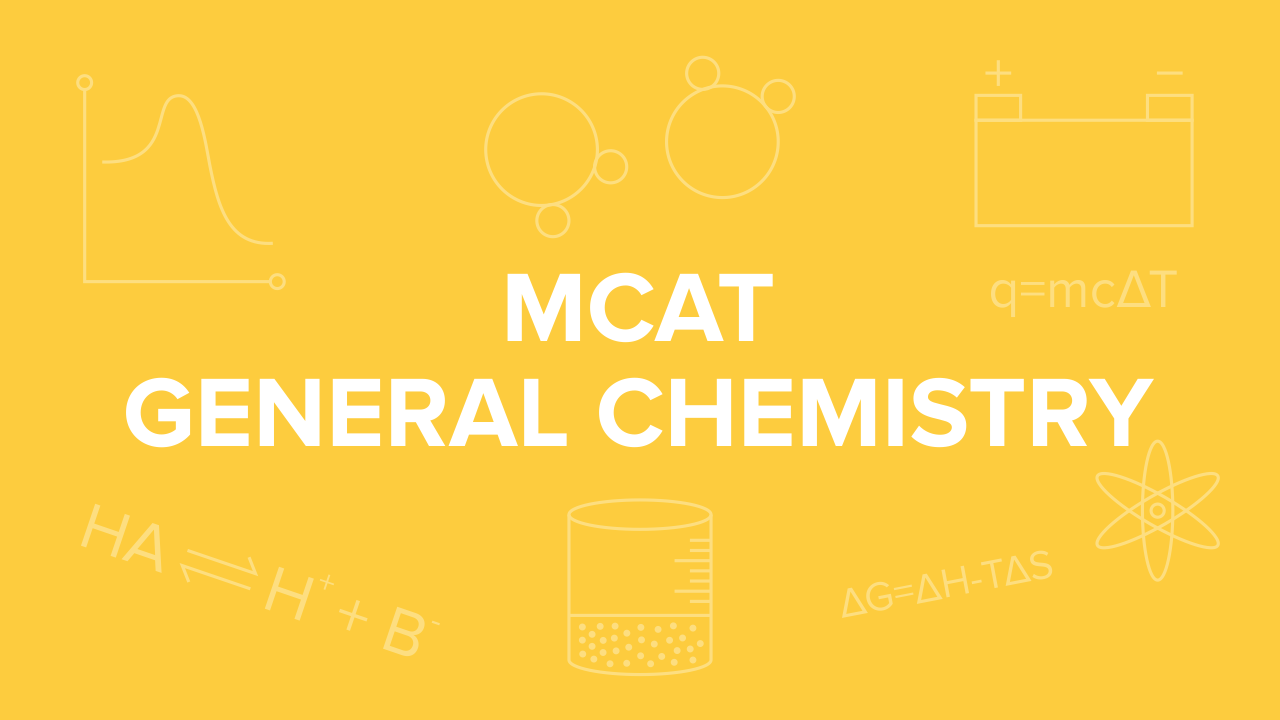
Part 1: Introduction
Part 2: The MCAT general chemistry content you need to know
Part 3: MCAT general chemistry study strategies
Part 4: MCAT general chemistry practice problems
Part 1: Introduction
Many premed students struggle with general chemistry questions on the MCAT. From seemingly complex math problems to equations that you just can’t seem to remember, MCAT chemistry questions can make you feel exasperated.
In addition, the MCAT is the most important exam you’ll take before medical school, and scoring well on the MCAT can greatly improve your medical school admissions odds. In addition to being the most important exam you’ll take, it is undeniable that the MCAT is likely the most challenging and longest exam you’ll take before medical school.
So, how much of this important exam will ask you questions about general chemistry? About 30% of your chemistry/physics section and 5% of your biology/biochemistry section will test you on general chemistry. In other words, around 18 questions in your C/P section and 3 questions in your B/B section will cover general chemistry. In total, around 9 percent of your entire exam will cover general chemistry.
Why do we mention this? Many students spend too much time on the small details of their test prep. These students learn content for memorization, but the MCAT requires you to instead learn content for application. You should not learn content material for the purpose of regurgitating it. Rather, you must learn content for the purpose of applying that knowledge to novel situations and practice passages.
In this blog, we’ll provide all of the content you need to know for the MCAT general chemistry questions. We’ll provide a toolbox that you can use for general chemistry problems, in addition to study strategies you can use to get more general chemistry questions right. Let’s get started!
Part 2: The general chemistry content you need to know for the MCAT
Note: Clicking on any of these thumbnails will take you to a comprehensive guide on that topic.
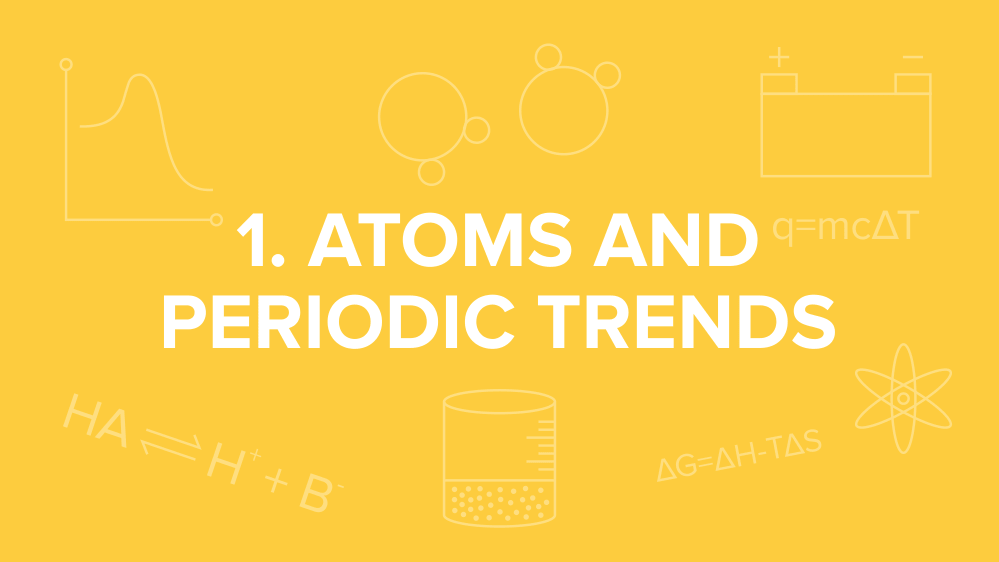

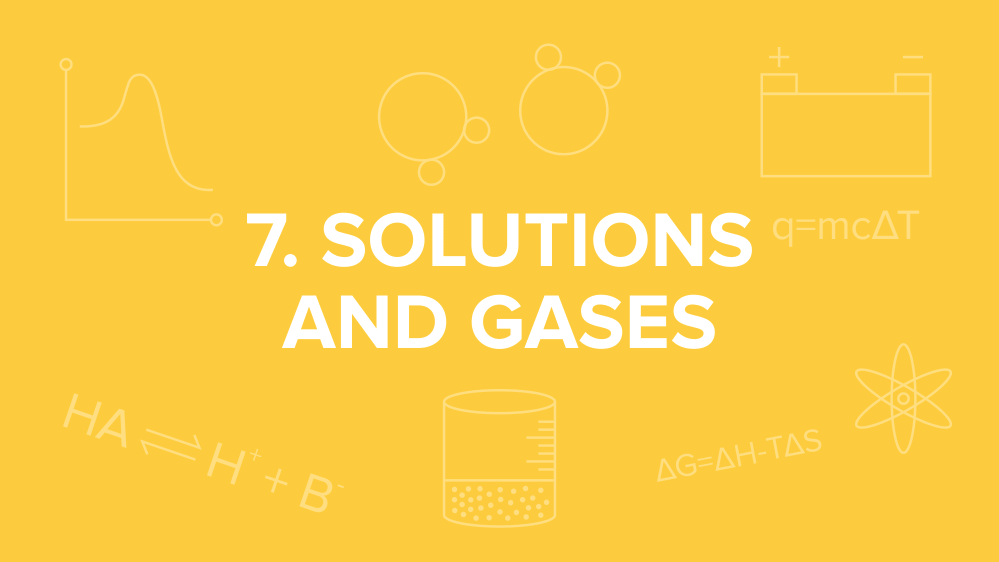

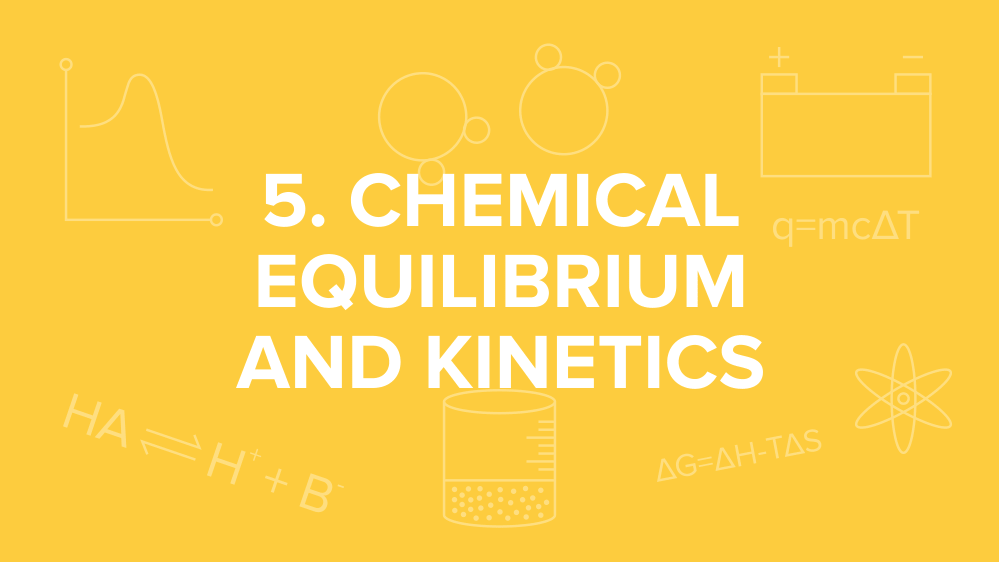
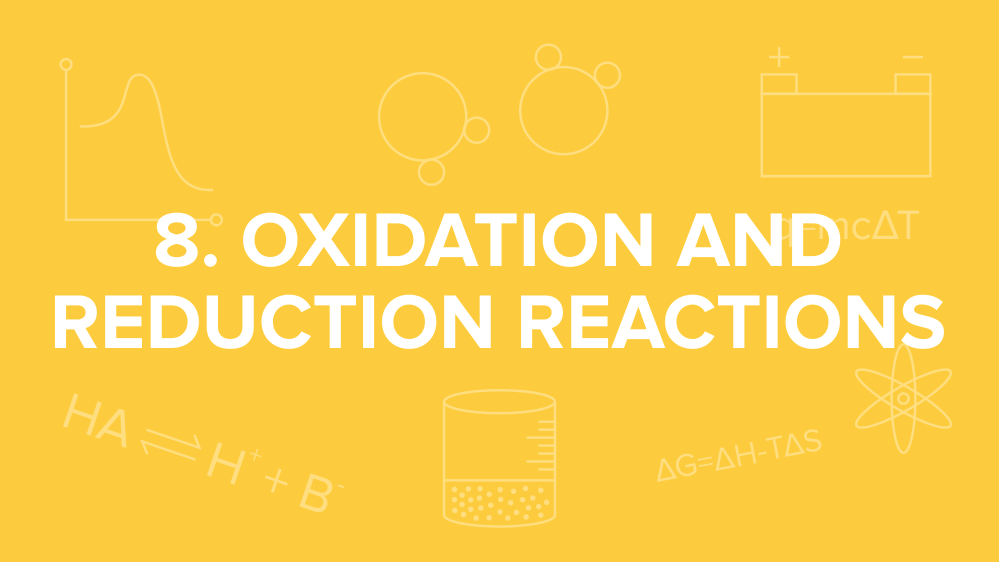
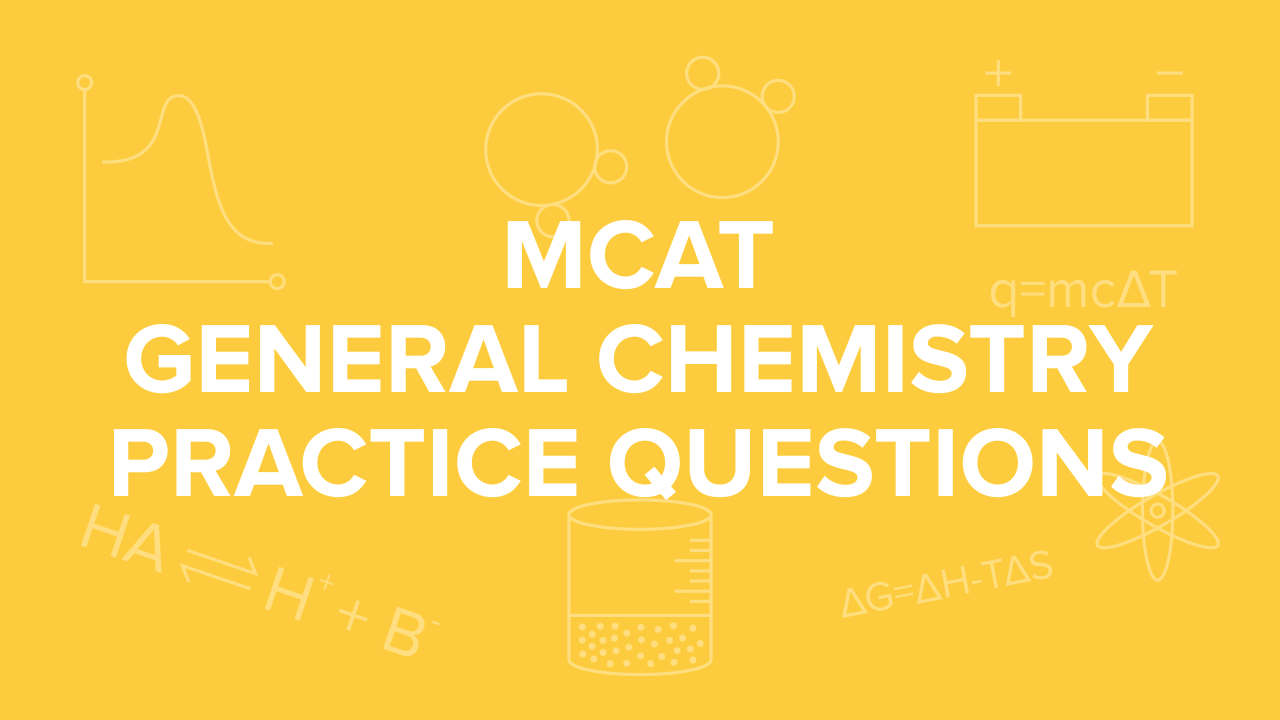
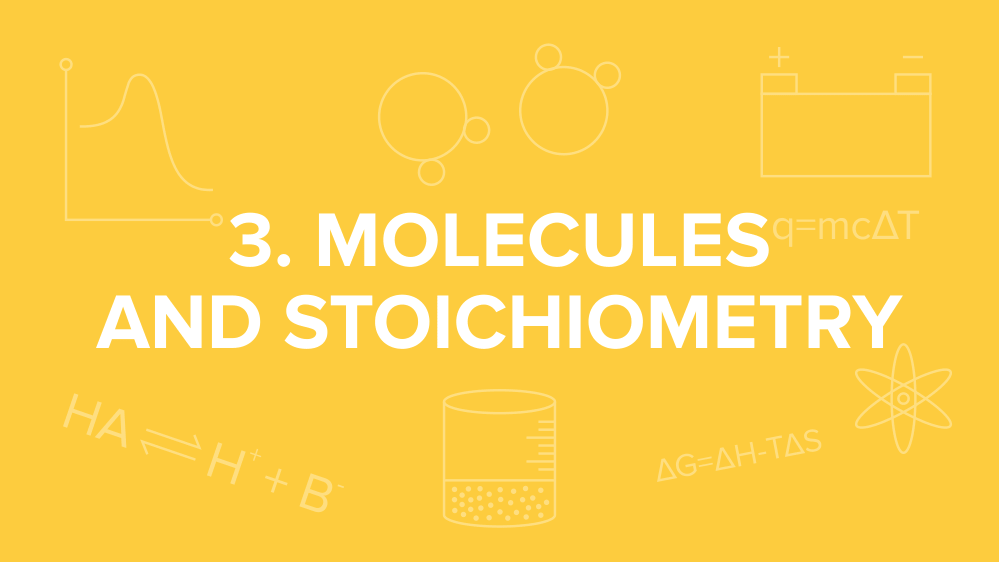
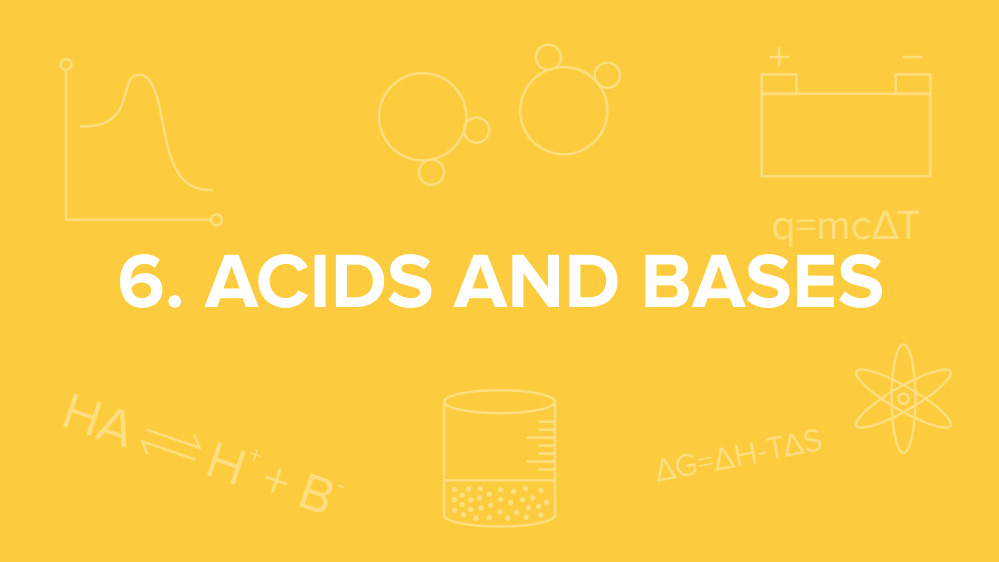
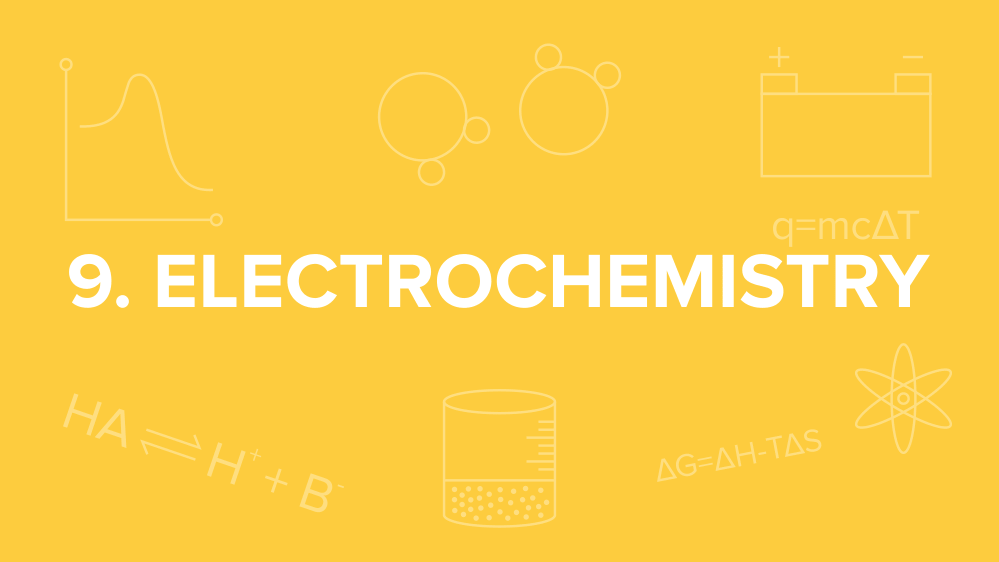
Part 3: MCAT general chemistry study strategies
In this section of the guide, we will present three high-yield study strategies you can use to handle MCAT general chemistry questions.
MCAT General Chemistry Tip #1: Study content for application and not for memorization.
Time is extremely valuable when you study for the MCAT. For that reason, you need to study content for application to practice passages and novel situations that the MCAT will throw at you instead of for memorization. The MCAT will rarely ask you to regurgitate a random general chemistry fact. Instead, the MCAT will present you a shortened scientific article in the form of a passage, ask you to critically analyze the passage, and ask questions the require you to combine your outside knowledge with knowledge from the passage.
So, what does it mean to study content for application and not for memorization? When you study any MCAT general chemistry subject, you should come up with three ways that the MCAT might test you on that content. Let’s look at an example with nucleophilic acyl substitution.
Many students panic when they see the words nucleophilic acyl substitution as the reaction can be carried out in a variety of different forms. For example, the reaction looks slightly different in acidic versus basic conditions and the nucleophile and leaving group can take a variety of forms. However, the overall principles behind the various reactions are the same:
1) A nucleophile attacks a carbonyl carbon.
2) Electrons move to an oxygen atom, which will now have a negative charge.
3) The electrons then move back down from the oxygen atom to reform the double bond.
4) A leaving group will leave.

What are three ways that the MCAT might test you on nucleophilic acyl substitution?
1) Triglyceride saponification
3) Anhydride cleavage
The first example listed here is very important as it connects multiple MCAT topics. Triglyceride saponification describes the breakdown of triglycerides into the glycerol backbone and fatty acids, and it follows the same principles of nucleophilic acyl substitution. However, this time the R group is the glycerol backbone, the nucleophile is a strong base (such as OH – ), and the leaving group is a fatty acid!
MCAT General Chemistry Tip #2: Know the one-letter code, three-letter code, structures, and chemical properties of all twenty amino acids and your chemistry functional groups.
It is highly likely that you’ll see amino acid questions on both the MCAT C/P and B/B sections. In addition to memorizing the structures of the twenty amino acids, you need to know the properties of each amino acid that are a result of that structure.
Let’s look at an example question:
Which of the following mutations to solvent-exposed residues in a protein is likely to have the greatest entropic penalty?
The correct answer here is C. Answer choices A and D are incorrect as the mutations maintain an entropic penalty but do not introduce a new one. Answer choice B is incorrect as the mutation maintains a favorable solvent-exposed residue since both E and D are negatively charged. Answer choice C is correct because the mutation of a positively charged arginine to a hydrophobic alanine would increase the need for ordered water molecules, thereby introducing an entropic penalty.
You’ll notice that the question didn’t directly ask you about amino acid memorization. Rather, you were required to draw upon both your knowledge of amino acids and your knowledge of entropy.
You should also know your functional groups to the same level of detail that you know your amino acids. If someone asks you to draw a ketone, you should be able to draw it without even thinking. Functional groups are important because their structure allows them to contain interesting chemical properties.
If you can draw out a ketone and analyze its structure, you won’t have to memorize that the carbonyl carbon is electrophilic. Instead, you’ll be able to quickly recall this property by looking at the structure of the functional group itself.
MCAT General Chemistry Tip #3: Review every passage you take, write down what you missed, and study that information so you don’t make the same mistake again.
Many students assume that the more practice exams and practice problems they take, the better they’ll score on the MCAT. While this is true to a certain extent, these students are not unlocking their full scoring potential.
When you take an MCAT passage, you should spend at least the equivalent amount of time reviewing that passage, writing down what you missed so that you don’t miss the question again, and studying the information so that you’ll know it before your next test. Let’s compare two students: Jane and Tomi.
Jane takes 17 practice tests before her exam, but she doesn’t get a chance to review each practice test before moving onto the next exam. Her score plateaus well before her desired score range. Tomi, on the other hand, takes only 9 practice full lengths before her real MCAT. After each exam, however, she spends ten hours reviewing the exam, writing down what she missed, and studying that information. Tomi reaches her goal score and doesn’t have to take the MCAT again.
What is the difference between these two students? Both Jane and Tomi put in a lot of time, effort, and hard work into MCAT studying. It is not an easy feat to take 17 practice tests. However, only Tomi spent the additional time to review her exams and figure out exactly what she was doing incorrectly.
Learning MCAT Chemistry is about to get fun


Join the Dalton family vacation as you learn about MCAT chemistry! Hitch a ride as they brave the elements on a road trip, get some quality family bonding time, and share a bad drug reaction that sends them all spiraling into a hallucinatory zone of thermochemical nightmares.

2 Chapters / 4 Lessons

2 Chapters / 5 Lessons

2 Chapters / 4 Lessons

2 Chapters / 5 Lessons

3 Chapters / 5 Lessons

3 Chapters / 8 Lessons

2 Chapters / 4 Lessons

6 Units / 42 Lessons
Whoops! We can’t show you this content without a subscription because it breaks down passages copywrited by the AAMC!
-p-500.webp)
The tough stuff, made simple
Sketchy’s MCAT General Chemistry course breaks down even the most difficult topics into short and easy to understand lessons.
%20(1)-p-500.webp)

Lessons you’ll remember
Sketchy uses creative storytelling and visual mnemonics to help you learn and retain everything you need to know about General Chemistry for the MCAT.
Measure your progress
Stay on track and see your learning progress with quizzes as well as full access to the AAMC MCAT Official Prep Online Bundle included with a Sketchy MCAT Prep Essentials subscription.


Get started, completely free for 7 days!
Get full access to Sketchy General Chemistry plus hundreds more free lessons for 7 days. Plans start at $29/mo, billed annually. Shorter term lengths available.

![]()
Programs
About Us
Support
MCAT® is a registered trademark of the Association of American Medical Colleges. The United States Medical Licensing Examination (USMLE®) is a joint program of the Federation of State Medical Boards (FSMB®) and National Board of Medical Examiners (NBME®). NAPLEX® is a registered trademark of the National Association of Boards of Pharmacy. PANCE© is a registered trademark of the National Commission on Certification of Physician Assistants. NCLEX® is a registered trademark and service mark of the National Council of State Boards of Nursing, Inc. None of the trademark holders are endorsed by nor affiliated with Sketchy or this website.









